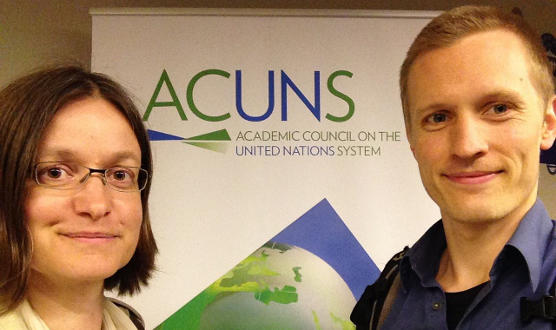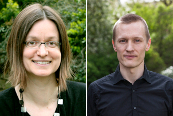Partnerships for Sustainable Development: Mutual Knowledge Exchange between Independent Research and Practice
News from Jul 15, 2014
The D1 project at the SFB 700 looks at partnerships for sustainable development and tries to identify the conditions for their successful provision of governance services in areas of limited statehood. In these multi-stakeholder partnerships, state and non-state actors work together to achieve their goals. In 2002, at the World Summit on Sustainable Development, the former United Nations (UN) Secretary-General Kofi Annan called upon these partnerships to improve the implementation of sustainable development. However, among these partnerships only some are actually successful, meaning that they have achieved broad, long-term impact for a more sustainable development. This is one reason why these partnerships are controversial. Nevertheless, many actors still consider them a favorable option. With public coffers empty, international organizations and governments are inclined to draw on the material and immaterial resources of private partners. In addition, partnerships with non-state actors enable the UN to implement projects in places where UN Member States are unwilling or unable to do so, such as in areas of limited statehood. Many developing countries have strong interest in partnerships. At the same time, opponents accuse the UN of “selling out” and criticize what they see as an increasing influence of multinational corporations.
The findings of the D1 project offer differentiation to the antagonistic front between advocates and opponents of partnerships. Our research indicates that these partnerships are neither panaceas that work smoothly everywhere, nor are they fundamentally evil attempts at privatization offering no political or developmental benefits to local populations. Instead, our findings show that the success of partnerships in areas of limited statehood depends on many conditions. Their effectiveness is tied to specific factors, including both external conditions in the areas of operation and internal matters of design and management (see Beisheim and Liese 2014). These findings have been presented at several political forums.
In 2014, project director Marianne Beisheim was the convening advisor on global partnerships for the “Charter for the Future” (Zukunftscharta), an initiative of the Federal Ministry for Economic Cooperation and Development (BMZ). Over a six-month period, she provided insight and guidance for the broad public consultation process and the drafting of the final charter: “One World – Our Responsibility”. She advocated that it would be best to first evaluate the successes and success conditions of existing partnership and from there provide a corresponding framework before initiating new partnerships. In the process, criteria were collaboratively developed to be applied to partnerships. This process also incorporated the D1 project’s empirical research findings, which were well received – not least because they echoed the experiences of many development organizations and NGOs involved.
In the SFB 700’s third funding period, the D1 project will investigate to what extent state or non-state actors draw on lessons learned about the conditions affecting the success and impact of partnerships for sustainable development, and what the consequences of this are in the future. The project team is particularly interested in the extent to which actors demand “meta-governance” – criteria and rules – for partnerships: or, as the case may be, actors’ own attempts at and justifications for creating meta-governance for partnerships.
Much is happening at the United Nations regarding this matter. Following the Rio+20 Conference and in preparation for the Post-2015 agenda for sustainable development, the UN has launched a new registry for voluntary initiatives and partnerships. Registration is coupled with certain requirements for reporting. In addition, the UN is considering a review mechanism that would not only assess state implementation of sustainable development but would also include “a platform for partnerships”. There is significant interest in how to design these processes: On the one hand, the UN hopes to expand its support of partnerships in the context of its Post-2015 agenda, not least because many developing countries are demanding it as a means of implementation. On the other hand, skepticism toward partnerships has increased among critical observers, especially from civil society. The UN finds itself under political pressure to steer and evaluate its partnerships more thoroughly. In 2014, project D1 presented initial considerations on these matters at the annual meeting of the Academic Council on the United Nations System (ACUNS) in June, and at the second meeting of the new UN High-Level Political Forum for Sustainable Development, under the auspices of the UN Economic and Social Council, in July.
The D1-project benefits from this practical experience and information exchange: It enables the researchers to engage in closer dialog and develop a deeper understanding than through research interviews alone. At the same time, the project team is aware of the necessity of avoiding mixing research and consultation: If the project investigates whether, why, and how certain actors envision and potentially try to shape the work of partnerships through meta-governance, then the advisory work must be put on hold. In our view, political actors benefit from the critical distance of the research perspective: After the research has been completed, they profit from an independent evaluation of their work – one that also covers questions they may have never asked.
|
|
About the authors: Dr. Marianne Beisheim is project director of D1, which explores the conditions for success of transnational development partnerships. Nils Simon ist wissenschaftlicher Mitarbeiter im D1 Projekt. is research associate in the project. Both researchers are part of the Global Issues Division at the German Institute for International and Security Affairs (SWP). |




